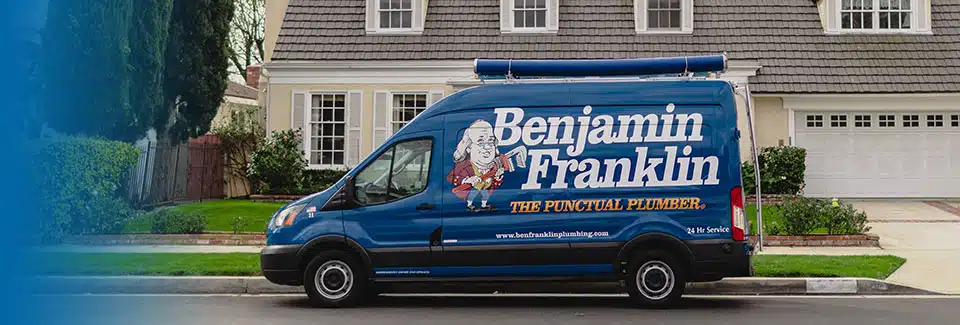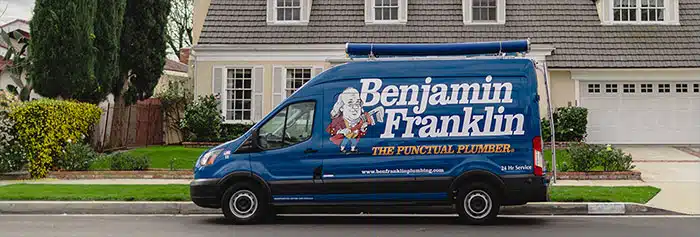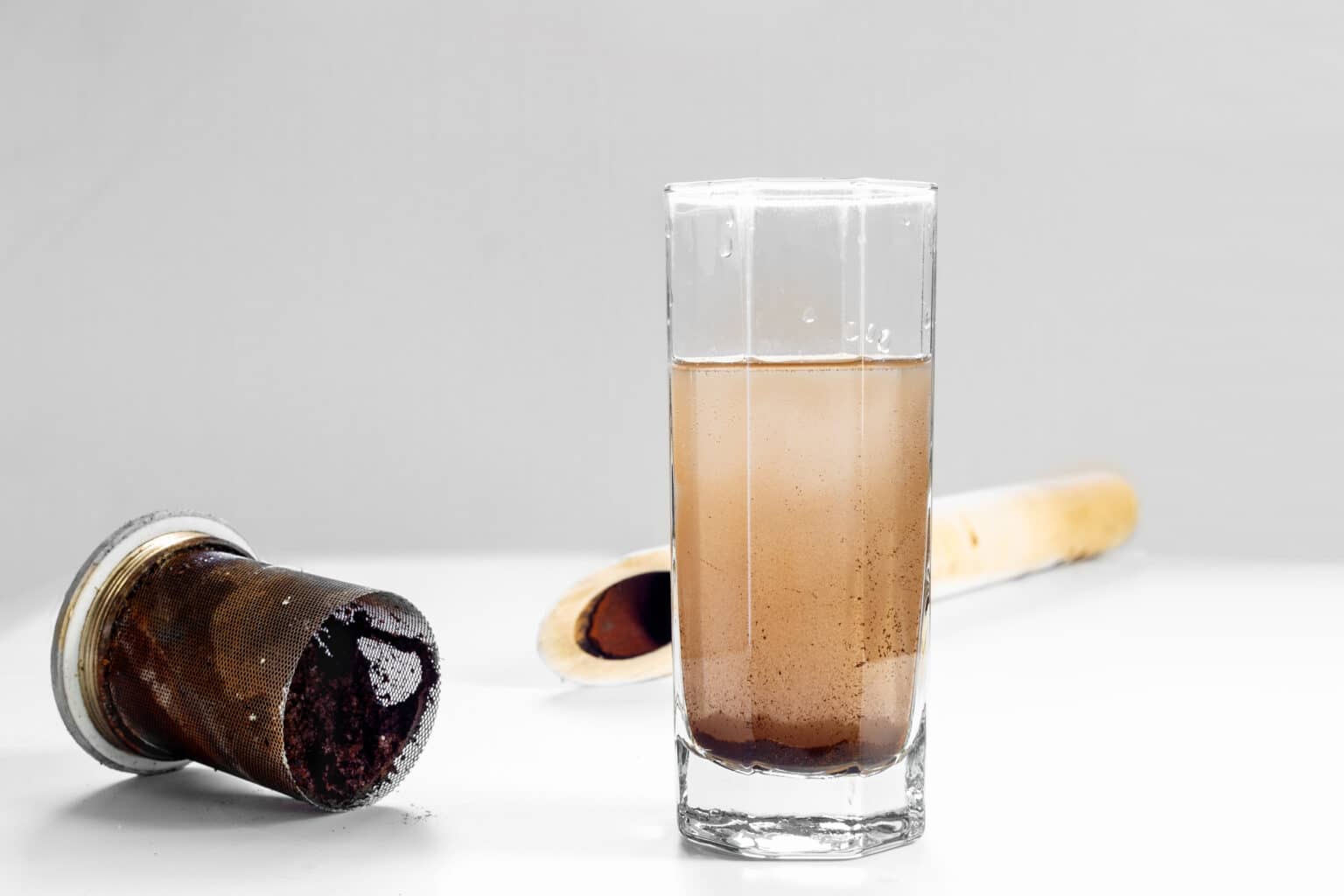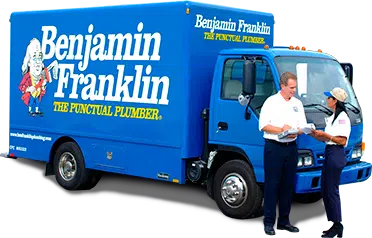Water quality issues in Phoenix are a big deal because of less federal funding and local issues like lead contamination. The EPA steps in when levels hit 0.015 mg/L. Homeowners can improve water quality by consulting professionals to assess their plumbing systems and install appropriate filtration systems to address concerns like heavy metals and chemical runoff effectively.
Understanding Challenges with Water Quality
Have you ever wondered why water quality issues are a big worry in Phoenix and Scottsdale, AZ?
Water is crucial for health and safety, but this desert area faces unique problems.
Dry conditions and changing water sources make things tough, made worse by cuts in funding for water infrastructure over decades.
Since the 1980s, federal help has dropped by 70%, so local governments often don’t have enough resources to handle these issues.
For homeowners, understanding these problems is key because addressing them can be complex.
The EPA says action is needed if lead levels hit 0.015 mg/L at a user’s home.
Usually, solutions involve professional intervention to change water chemistry or replace lead pipes.
Even with these hurdles, awareness and taking action like using quality filters and testing water regularly can really help.
Giving people knowledge leads to a healthier future, encouraging communities to push for the resources needed to address these big issues.
As talks about water quality issues continue, residents need partners who can give advice and solutions that fit their community’s needs, making sure everyone can get safe, clean water.
Why Scottsdale, AZ Faces Water Quality Issues
In Scottsdale, natural factors such as weather and land shape influence water conditions.
The dry air here contributes to mineral buildup in the water.
Hot weather also leads to increased evaporation, resulting in saltier water.
These natural occurrences challenge efforts to maintain clean water, necessitating specialized systems to ensure safe drinking water.
Human activities exacerbate the issues.
Runoff from industrial and agricultural activities significantly impacts water quality.
Factories near Scottsdale may introduce heavy metals and chemicals into the water supply.
Similarly, farms may contribute pesticides and fertilizers through runoff during rainfall.
This combination of natural and human factors underscores the need for effective regulations and local assistance in monitoring and managing these challenges.
With reductions in federal funding, local governments face challenges in addressing water quality alone, so community involvement is crucial.
It requires collaboration and innovative approaches to keep Scottsdale’s water safe and clean.
Types of Water Quality Issues in the Area
In busy Scottsdale, AZ, water problems are a big deal because of different kinds of pollution hurting ground and surface water.
Groundwater contamination mainly comes from things like nitrates, industrial chemicals, and leftover pesticides.
These get into the aquifers and make the underground water less clean.
If not managed, these can build up to bad levels over time.
At the same time, surface water pollution is mostly due to urban runoff, farm pesticides, and waste.
When it rains hard, stuff on roads and fields washes into rivers, lakes, and reservoirs, creating water quality issues.
This runoff often has oils, heavy metals, and nutrients that can mess up local ecosystems and make water unsafe.
To fight these problems, good water management is key.
Collaborating with local authorities to improve water drainage systems and advocating for environmentally friendly practices can contribute to reducing water pollution in the community.
Communities need to collaborate to tackle these pollution sources, keeping Scottsdale’s water clean and safe.
In a place where water is so precious, keeping it pure is not just important—it’s a must for a sustainable future.
Common Problems Related to Water Quality in Scottsdale
Scottsdale’s water faces a lot of issues that need a close look.
Heavy metals like lead and arsenic are a concern for the region’s water and can affect health if not handled right.
Lead can get into the water from old pipes, especially in buildings with outdated plumbing.
Managing this often involves changes in the water system or pipe repairs.
Pesticides and chemical runoff are also concerns, mostly from agricultural areas around Scottsdale.
These chemicals seep into the ground and impact the ecosystem, creating potential health risks for residents.
As the city grows, more runoff with substances like motor oil and lawn fertilizers ends up in the water.
Addressing water quality issues requires ongoing monitoring and community involvement.
This is challenging due to limited resources.
Local governments carry much of this responsibility, striving to maintain water safety and cleanliness.
How Bad Water Affects Your Health
Water quality issues can seriously harm your health, both now and later.
In the short term, you might get sick to your stomach, feel like throwing up, or get diarrhea from dirty water.
Your skin might itch or break out in a rash if the water has too many bad things like chlorine or pesticides.
Over time, substances in Scottsdale’s water, like lead and arsenic, can cause more serious health problems.
Long exposure to lead is especially bad for kids and pregnant women, often leading to slow growth and brain issues.
Arsenic can lead to cancer and other significant health problems with prolonged exposure.
Finding good solutions with what we have can be challenging.
Homeowners can help themselves by seeking professional advice on appropriate water filtration systems and maintaining regular water quality checks.
Ensuring everyone has clean water is key to better health and lessening disease risk.
Water Safety Rules and Guidelines
Water rules ensure safety for everyone.
In cities like Phoenix and Scottsdale, AZ, these regulations are crucial due to water quality issues such as lead contamination.
The EPA’s Lead and Copper Rule applies if lead levels exceed 0.015 mg/L.
This may require adjustments in water chemistry or replacing lead pipes, which can be costly for many areas.
The challenge intensifies as federal funding for water projects has fallen by 70% since the 1980s, adding pressure on local administrations.
Federal regulations like the Safe Drinking Water Act establish standards for clean water nationwide, while Arizona has additional guidelines to tackle specific challenges.
These include managing pesticides, prevalent due to regional agriculture.
Residents in Scottsdale need to trust local water suppliers to comply with these stringent regulations, ensuring water safety in line with both federal and state laws.
Understanding these guidelines is crucial for homeowners facing water quality issues.
Testing your water and possibly adjusting home systems is important.
For comprehensive solutions to water quality issues, Benjamin Franklin Plumbing of Phoenix, AZ can assist you in understanding these regulations and taking the necessary actions.
Checking and Keeping an Eye on Water Quality
Making sure water is safe in Scottsdale, AZ starts with testing it right and often.
It’s advisable for households to test for water quality issues every year for contaminants like lead, arsenic, and pesticides, as these can be present in the area.
For a basic assessment, simple test kits are available at hardware stores.
However, for a more comprehensive analysis, hiring a professional is recommended.
This is especially important in areas with older plumbing, as lead levels above 0.015 mg/L, as set by the EPA, can be hazardous.
Local health offices and water utilities actively monitor water quality in Phoenix and Scottsdale.
They follow strict protocols to comply with federal standards, regularly checking water samples.
This vigilance helps identify potential risks early so that necessary measures can be taken to ensure public safety.
It’s crucial for residents to also be engaged in water safety.
By reviewing local water reports and utilizing community resources, individuals contribute to maintaining high standards of safety.
Being informed and proactive helps ensure that everyone in Arizona continues to have access to safe and clean water.
How to Improve Water Quality at Home

Making your water better starts with easy steps to keep it clear and safe.
Installing professionally recommended water filtration systems can help address common contaminants like chlorine and sediment.
Consult a plumbing professional to ensure your system meets your home’s specific needs.
People in Scottsdale benefit greatly from these due to the area’s water quality issues.
Keeping up with your pipes and water systems is also key.
Pipes can rust or get blocked with junk over time, which can mess with the purity of your supply.
Hiring a plumbing service, like Benjamin Franklin Plumbing of Phoenix, AZ, makes sure your system works well and avoids risks from old or worn-out pipes.
Their experts can do thorough checks and suggest the best solutions to keep your water clean.
Also, performing regular home water tests helps you find issues early so you can deal with them fast.
These checks give you peace of mind and keep your family safe from hidden dangers in the water.
By taking these steps, you protect against common water quality issues, ensuring clean, dependable water for your home in Scottsdale, AZ.
What to Do If You Suspect Water Contamination
If you’re worried about potential water quality issues in your Scottsdale, AZ home, it can feel alarming.
But knowing what to do helps a lot.
First, stop using the water for drinking or cooking.
Use bottled water while you check it out.
The next step is to test the water.
Your local health department can tell you how to collect a sample and where to send it.
If tests indicate water quality issues, it’s time to get help from an expert.
Benjamin Franklin Plumbing of Phoenix, AZ can help.
Their team can look at your plumbing, find out what’s wrong, and suggest fixes.
They can do things like replace old pipes or put in good filters to improve the situation.
Remember: Act fast to keep your family safe and avoid harming your plumbing.
Be proactive about keeping your water clean and safe.
Reach out to professionals who can help ensure your home’s water is clean and safe.
Role of Local Agencies in Managing Water Quality
Local groups and community efforts are key in handling water quality issues in Scottsdale, AZ.
Various local organizations monitor water conditions closely, checking it often and making plans to tackle problems.
The Arizona Department of Environmental Quality (ADEQ) is crucial here, working with local water providers to ensure they meet EPA rules, like the Lead and Copper Rule.
This rule calls for action if lead levels go over 0.015 mg/L, pushing for changes in water chemistry or lead pipe swaps—which can be hard for towns without much money.
Community involvement plays a supportive role.
Local groups and neighbors work to spread awareness and encourage residents to save water, without assuming all tasks.
These efforts can provide valuable knowledge and tools to help address Scottsdale’s unique challenges.
As a resident or a concerned person, supporting these plans can enhance shared skills and better manage water resources.
By working together, local agencies and community involvement can lead to cleaner, safer water in Scottsdale.
If you’re experiencing such challenges in your home, contact Benjamin Franklin Plumbing of Phoenix, AZ for expert advice and solutions.
Why Professional Plumbing Services Improve Water Quality
Getting the help of plumbing pros makes a big difference in fixing water quality issues.
At Benjamin Franklin Plumbing in Phoenix, AZ, their team knows how to spot and resolve water challenges common in Scottsdale.
They understand water systems intricately and use top-notch tech to keep your home’s water safe and clean.
With issues like lead and farm runoff affecting local sources, the skills and accuracy of plumbing experts are crucial.
They conduct thorough water testing, identify pollutants, and install advanced filters.
Plus, they ensure your water systems comply with all regulations, safeguarding you from any legal troubles.
Benjamin Franklin Plumbing is all about excellence and timeliness, which means you can count on them and relax.
By using their services, homeowners experience immediate water improvements and receive advice to prevent future problems.
Trusting professional plumbing services is not just smart; it’s essential for addressing water quality issues and keeping your home safe and healthy.
Selecting the Right Water Filter System
Choosing the right water filter system for your home means knowing what you need and what options are available.
Various filters address different water quality issues.
Reverse osmosis systems are great for removing heavy metals, while activated carbon filters excel at eliminating chlorine and other common chemicals.
To pick the right one, you should first check the quality of your water.
Start by testing your water to determine what contaminants are present.
You can use do-it-yourself kits or engage a lab for testing.
This will provide a clear idea of what issues exist.
Then, consider the size of the filter you need based on your household size and water usage.
Ease of installation and required maintenance frequency are also important.
Some systems need a professional for setup, while others are user-friendly for self-installation.
Regular maintenance is key for keeping your water clean and the system operating efficiently.
Experts like Benjamin Franklin Plumbing of Phoenix can assist.
They can guide you through selecting and setting up the system so your family receives safe, high-quality water.
Home Tips to Keep Water Clean
Addressing water quality issues at home is key for your family’s health and safety.
Simple steps can help a lot.
Check faucets, pipes, and kitchen fittings often for leaks or rust, as these can let in dirt.
Have professionals inspect and clean aerators and screens to prevent buildup that may affect water flow, ensuring water remains clean and safe.
During colder months, have professionals assess and insulate exposed pipes to prevent damage and maintain the integrity of your plumbing system.
When it gets warm, consider scheduling maintenance for your water heater to address water quality issues caused by stuff that settles over time—this helps keep your appliance running longer.
Using water-saving devices can cut down on home water use, easing the strain on local water systems.
This helps your home and the community in Scottsdale, AZ.
If you think there’s a problem or need help, call Benjamin Franklin Plumbing of Phoenix, AZ.
Their know-how ensures you and your community have clean, safe water.
FAQs
What’s the main cause of water quality issues in Scottsdale, AZ?
Water quality issues are primarily caused by natural factors like mineral deposits and human-related problems, such as industrial runoff and aging pipes.
How often should I check my home’s water quality?
It’s a good idea to check at least once a year if you notice a change in taste, color, or smell.
Can plumbers help address water quality issues?
Yes, professional plumbers can address water quality issues by installing filtration systems and performing regular check-ups to ensure high water quality is maintained.
What health risks come with poor water quality?
Poor water quality can result in stomach issues, skin problems, and long-term effects from contaminants like lead.
What water filter system is suitable for homes in Scottsdale?
It depends on your specific requirements, but consulting with a professional can help you choose the right system, such as a reverse osmosis system, which is popular for removing common contaminants.







